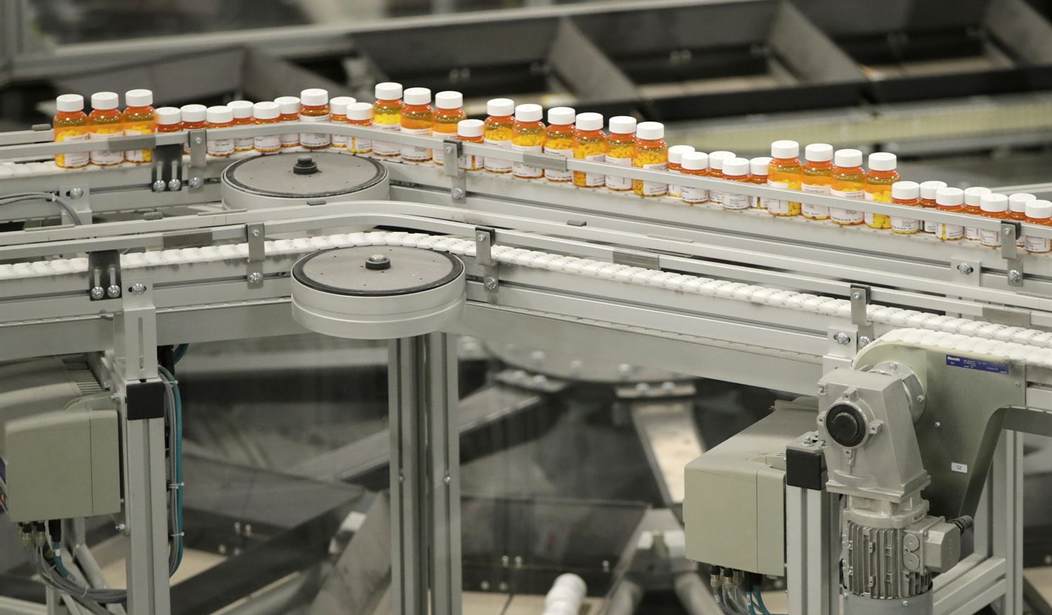There are 58 million Americans who cannot afford the drugs they need, and 34 million adults know someone who died because they could not afford medications. Earlier this month, the House Ways & Means Committee endorsed H.R. 3, a proposal that would set prescription drug price controls as one way to pay for the massive $3.5 trillion reconciliation bill. While price controls may seem like an effective policy solution, they will result in drug shortages, a loss of future innovative treatments, and deny patients access to critical medicines for severe diseases.
Data from the RAND Corporation shows the price of prescription drugs in the United States increased by 76 percent between 2000 and 2017, well above the average inflation rate. This statistic is reflected in a recent report issued by the Department of Health and Human Services that revealed Americans pay more than $1,500 per person on prescription drugs, well above those in the United Kingdom, Canada, and the European Union.
A plethora of peer-reviewed studies reveal that price controls diminish profits and consequently affect future research and new drugs production. For example, quantitative analyses of EU price controls collected over 19 years showed that Europeans had access to 46 fewer drugs; if the same rules were imposed in the US, there would be 117 fewer new drugs. These regulations would eventually prevent patients from accessing future medications for treatable medical conditions in the long term.
Price controls will also make it more difficult for Americans to receive life-saving medications as early as possible. Research shows that mandating price cuts by 40 percent to 50 percent will reduce Research and Development by 30 percent to 60 percent for new drugs. Decreasing R&D funding reduces the availability of new drug products, and Americans may have to wait longer for new pharmaceutical drugs, which will have negative health impacts.
Britain's Institute of Cancer Research voiced concern that price-control medications delayed patients' access to life-saving cancer drugs. More specifically, in 2018, price controls in the UK have constrained cancer patients' access to innovative medications like Palbociclib and Ribociclib. These cancer drugs were authorized in 2017 for Americans, but British cancer patients could not access the drug until 2020. The Palbociclib and Ribociclib drugs have been shown to slow cancer progression by at least 10 months and postpone chemotherapy, allowing cancer patients to live longer and enjoy a better quality of life.
Recommended
Price controls denying patient access to prescription drugs shows that the policy does not benefit patients and could leave them worse off. A smarter approach should not endanger consumer access to quality healthcare or medication availability. One such policy that would avoid these pitfalls is making it easier for generic drugs and biosimilars to enter the market.
A generic drug is a pharmaceutical product that is designed to be the same as a brand-name drug that has previously been approved by the FDA. Generic medicinal products must fulfill the same high standards of quality and production as brand-name drugs. They cost less to develop, and less to patients, since expensive clinical trials for safety and efficacy have already been completed.
According to recent Food and Drug Administration (FDA) data, when generic medicine manufacturers compete, generic drugs prices decline. Studies have shown that when brand name manufacturers face two to six generic competitors, the costs can fall by 95 percent. Improving access to generic drugs could save Americans $4 billion a year. Removing barriers to generic drugs will allow more people to obtain life-saving medications at a lower cost.
While price controls may seem an attractive policy, evidence shows it will have unintended consequences that will inflict significant damage on patients, both short-term and long-term. Rather than hampering the ability of pharmaceutical companies to develop critical medications and access drugs, Congress should prioritize making generic medications more readily available to consumers.
Edward Longe is a Policy Manager and Pauline Kabambi is a Policy Intern at the American Consumer Institute, a nonprofit educational and research organization. For more information about the Institute, visit www.TheAmericanConsumer.org or follow us on Twitter @ConsumerPal

























Join the conversation as a VIP Member